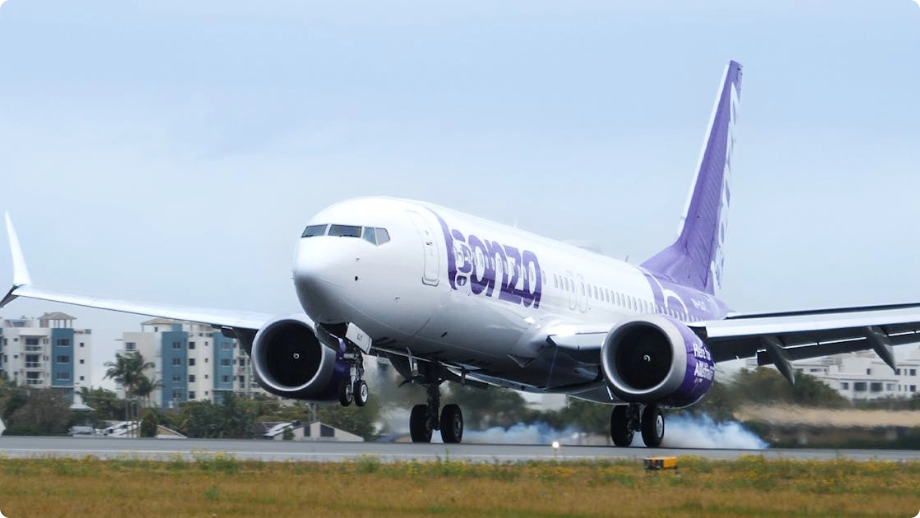Introduction
The recent announcement that Bonza Airlines has entered voluntary administration marks a significant moment in the aviation industry, particularly within the challenging environment of post-pandemic recovery.
This development not only highlights the volatile nature of the airline industry but also serves as a critical learning opportunity for businesses across sectors on managing financial distress and restructuring effectively.
Understanding Voluntary Administration
“Voluntary Administration” is a process designed to resolve a company’s financial distress. It provides a company with breathing space from creditors while assessing options.
The goal is often to maximise the chances of a business continuing, or to provide a better return for creditors than an immediate winding up.
Understanding Voluntary Administration: A Quick Guide
• Initial Phase: Company directors appoint an administrator, usually when the company is insolvent or likely to become insolvent.
• Protection Period: The company gains temporary protection from creditors, stopping all lawsuits and collection activities.
• Operational Review: The administrator assesses the company’s operations, finances, and structure to identify viable options for recovery.
• Creditor Meetings: The administrator holds meetings with creditors to present findings and propose future steps, which may include restructuring plans.
• Decision Making: Creditors vote on the administrator’s proposal, which can range from returning control to the directors, accepting a deed of company arrangement (DOCA), or proceeding to liquidation.
• Outcome Implementation: Depending on the creditors’ decision, the company either restructures under agreed terms, returns to normal operation, or enters liquidation.
The challenges faced by Bonza Airlines
Bonza Airlines, like many in the sector, faced unprecedented challenges exacerbated by fluctuating demand, rising operational costs, and stringent regulatory environments.
Key factors leading to their decision for Voluntary Administration likely included:
• Cash Flow Problems: Sustaining operations amidst fluctuating ticket sales and rising fuel prices can rapidly deplete cash reserves.
• Debt Levels: High initial and operational costs can lead to significant debt levels, which become unsustainable without steady revenue streams.
• Market Competition and Price Wars: Competitive pricing strategies from established players can marginalise the profitability of new entrants.
Strategic decisions during a crisis
The decision to enter voluntary administration is not taken lightly and reflects a strategic choice to potentially salvage the company’s future. This move can allow the business to restructure while operations continue in a limited capacity. Key strategies typically involve:
• Operational Restructuring: This might include route optimisation, renegotiating supplier contracts, and workforce adjustments.
• Financial Restructuring: Securing fresh capital injections, renegotiating terms with creditors, and possibly divesting non-core assets to generate liquidity.
• Stakeholder Engagement: Maintaining open lines of communication with all stakeholders to manage expectations and negotiate support is crucial.
Lessons for other businesses
Bonza Airlines’ scenario is a stark reminder of the importance of agility and proactive financial management. Businesses, regardless of size, can draw significant lessons:
• Early Warning Systems: Implement robust financial monitoring to detect signs of distress early.
• Contingency Planning: Develop and regularly update contingency plans to address potential financial shortfalls.
• Diversification: Avoid over-reliance on a single revenue stream or market segment.
• Stakeholder Management: Engage regularly with stakeholders, particularly in times of crisis, to ensure continued support and understanding.
Airline insolvencies are nothing new…
The airline industry has had its fair share of instances where carriers have entered Voluntary Administration (or an equivalent process in their legal jurisdiction) and successfully emerged stronger. Here are some notable examples:
Virgin Australia
• Year: 2020
• Context: Virgin Australia, the second-largest airline in Australia, entered voluntary administration due to the severe impact of the COVID-19 pandemic on the travel industry. The airline faced significant debt levels and was unable to secure government support, which necessitated the move to restructure under Voluntary Administration.
• Outcome: Under the administration process, Virgin Australia was purchased by Bain Capital, which helped the airline restructure its debts and operations. The restructuring plan included reducing the fleet size, focusing on core domestic and short-haul international routes, and cutting costs across the board. Virgin Australia successfully emerged from voluntary administration later in 2020, repositioned as a stronger, more competitive carrier.
Japan Airlines (JAL)
• Year: 2010
• Context: Delta Air Lines, one of the major carriers in the United States, filed for Chapter 11 bankruptcy protection, a process similar to voluntary administration in the U.S., due to high fuel prices, expensive labor contracts, and heavy debt.
• Outcome: Delta successfully restructured its operations, including renegotiating its labour contracts, cutting unprofitable routes, and modernising its fleet. It emerged from bankruptcy in 2007 and has since become one of the leading airlines globally.
Air New Zealand
• Year: 2001
• Context: After the collapse of Ansett Australia, a subsidiary in which Air New Zealand held a significant stake, the national carrier of New Zealand faced severe financial distress.
• Outcome: The New Zealand government stepped in with a substantial bailout package, which included taking a majority stake in the airline. Air New Zealand underwent a significant restructuring program, focusing on its core business and eventually returned to profitability.
These examples illustrate that while the process is challenging and not without risk, successful recovery from financial distress through Voluntary Administration or similar processes is possible with the right strategic decisions and restructuring efforts.
Don’t be the next “Bonza Airlines” of your industry…
We are equipped to guide directors and owners through their darkest hours with strategic insights and practical solutions that not only aim to preserve business value but also pave the way for sustainable growth and profitability. Call us on 1300 181 220 or book a cost-free, obligation-free consultation online.
To help an SMB before it gets into a situation like Bonza Airlines, some of the advisory services we provide include:
• Financial Health Assessment: Rapid, in-depth analysis of financial statements and cash flow forecasts to identify critical pressure points.
• Operational Review and Cost Optimisation: Identifying inefficiencies in the operational model and potential savings without compromising service quality.
• Negotiation with Creditors: Structuring negotiations to align with long-term business recovery plans and short-term operational needs.
• Strategic Planning for Recovery: Developing a robust recovery plan (such as a Small Business Restructuring (SBR) plan) that includes exploring new markets, adjusting business models, and potential strategic partnerships to stabilise and grow the business.
While Bonza Airlines’ Voluntary Administration reflects the harsh realities of the airline industry post-pandemic, it also underscores the critical need for strategic foresight and robust financial planning.
Expert Voluntary Administration Advisory for Business Owners and Directors
At AVA Advisory, we specialise in providing comprehensive support and strategic advice to directors and business owners during the challenging period of voluntary administration.
Our goal is to secure their interests and guide them towards a viable path for business recovery or restructuring. Here’s how we assist:
• Strategic Planning: We begin by assessing the company’s current financial and operational situation to develop a strategic plan that addresses immediate financial pressures and long-term business viability.
• Communication Strategies: Effective communication with creditors, employees, and other stakeholders is crucial. We help formulate clear and transparent communication to maintain trust and manage expectations throughout the administration process.
• Negotiations with Creditors: We act as intermediaries in negotiations with creditors, aiming to achieve outcomes that are favourable to the business while maintaining feasible repayment terms. This includes proposing and structuring terms for a Deed of Company Arrangement (DOCA) that aligns with the company’s recovery strategy.
• Restructuring Expertise: Our team provides insights and strategies for operational and financial restructuring, including cost reduction, asset optimisation, and exploring new revenue streams, which are essential for a successful turnaround.
• Exit Strategy: We assist in planning and implementing the exit from administration, ensuring the business is set on a sustainable path, whether it involves returning control to the directors, transitioning to new ownership, or other outcomes agreed upon by the creditors.
By partnering with AVA Advisory, directors and business owners gain access to a team of experts committed to safeguarding their interests and steering their companies towards a stable and prosperous future.
For an obligation-free and cost-free consultation, call us on 1300 181 220 or book a consultation online.
Introduction
The recent announcement that Bonza Airlines has entered voluntary administration marks a significant moment in the aviation industry, particularly within the challenging environment of post-pandemic recovery.
This development not only highlights the volatile nature of the airline industry but also serves as a critical learning opportunity for businesses across sectors on managing financial distress and restructuring effectively.
Understanding Voluntary Administration
“Voluntary Administration” is a process designed to resolve a company’s financial distress. It provides a company with breathing space from creditors while assessing options.
The goal is often to maximise the chances of a business continuing, or to provide a better return for creditors than an immediate winding up.
Understanding Voluntary Administration: A Quick Guide
• Initial Phase: Company directors appoint an administrator, usually when the company is insolvent or likely to become insolvent.
• Protection Period: The company gains temporary protection from creditors, stopping all lawsuits and collection activities.
• Operational Review: The administrator assesses the company’s operations, finances, and structure to identify viable options for recovery.
• Creditor Meetings: The administrator holds meetings with creditors to present findings and propose future steps, which may include restructuring plans.
• Decision Making: Creditors vote on the administrator’s proposal, which can range from returning control to the directors, accepting a deed of company arrangement (DOCA), or proceeding to liquidation.
• Outcome Implementation: Depending on the creditors’ decision, the company either restructures under agreed terms, returns to normal operation, or enters liquidation.
The challenges faced by Bonza Airlines
Bonza Airlines, like many in the sector, faced unprecedented challenges exacerbated by fluctuating demand, rising operational costs, and stringent regulatory environments.
Key factors leading to their decision for Voluntary Administration likely included:
• Cash Flow Problems: Sustaining operations amidst fluctuating ticket sales and rising fuel prices can rapidly deplete cash reserves.
• Debt Levels: High initial and operational costs can lead to significant debt levels, which become unsustainable without steady revenue streams.
• Market Competition and Price Wars: Competitive pricing strategies from established players can marginalise the profitability of new entrants.
Strategic decisions during a crisis
The decision to enter voluntary administration is not taken lightly and reflects a strategic choice to potentially salvage the company’s future. This move can allow the business to restructure while operations continue in a limited capacity. Key strategies typically involve:
• Operational Restructuring: This might include route optimisation, renegotiating supplier contracts, and workforce adjustments.
• Financial Restructuring: Securing fresh capital injections, renegotiating terms with creditors, and possibly divesting non-core assets to generate liquidity.
• Stakeholder Engagement: Maintaining open lines of communication with all stakeholders to manage expectations and negotiate support is crucial.
Lessons for other businesses
Bonza Airlines’ scenario is a stark reminder of the importance of agility and proactive financial management. Businesses, regardless of size, can draw significant lessons:
• Early Warning Systems: Implement robust financial monitoring to detect signs of distress early.
• Contingency Planning: Develop and regularly update contingency plans to address potential financial shortfalls.
• Diversification: Avoid over-reliance on a single revenue stream or market segment.
• Stakeholder Management: Engage regularly with stakeholders, particularly in times of crisis, to ensure continued support and understanding.
Airline insolvencies are nothing new…
The airline industry has had its fair share of instances where carriers have entered Voluntary Administration (or an equivalent process in their legal jurisdiction) and successfully emerged stronger. Here are some notable examples:
Virgin Australia
• Year: 2020
• Context: Virgin Australia, the second-largest airline in Australia, entered voluntary administration due to the severe impact of the COVID-19 pandemic on the travel industry. The airline faced significant debt levels and was unable to secure government support, which necessitated the move to restructure under Voluntary Administration.
• Outcome: Under the administration process, Virgin Australia was purchased by Bain Capital, which helped the airline restructure its debts and operations. The restructuring plan included reducing the fleet size, focusing on core domestic and short-haul international routes, and cutting costs across the board. Virgin Australia successfully emerged from voluntary administration later in 2020, repositioned as a stronger, more competitive carrier.
Japan Airlines (JAL)
• Year: 2010
• Context: Delta Air Lines, one of the major carriers in the United States, filed for Chapter 11 bankruptcy protection, a process similar to voluntary administration in the U.S., due to high fuel prices, expensive labor contracts, and heavy debt.
• Outcome: Delta successfully restructured its operations, including renegotiating its labour contracts, cutting unprofitable routes, and modernising its fleet. It emerged from bankruptcy in 2007 and has since become one of the leading airlines globally.
Air New Zealand
• Year: 2001
• Context: After the collapse of Ansett Australia, a subsidiary in which Air New Zealand held a significant stake, the national carrier of New Zealand faced severe financial distress.
• Outcome: The New Zealand government stepped in with a substantial bailout package, which included taking a majority stake in the airline. Air New Zealand underwent a significant restructuring program, focusing on its core business and eventually returned to profitability.
These examples illustrate that while the process is challenging and not without risk, successful recovery from financial distress through Voluntary Administration or similar processes is possible with the right strategic decisions and restructuring efforts.
Don’t be the next “Bonza Airlines” of your industry…
We are equipped to guide directors and owners through their darkest hours with strategic insights and practical solutions that not only aim to preserve business value but also pave the way for sustainable growth and profitability. Call us on 1300 181 220 or book a cost-free, obligation-free consultation online.
To help an SMB before it gets into a situation like Bonza Airlines, some of the advisory services we provide include:
• Financial Health Assessment: Rapid, in-depth analysis of financial statements and cash flow forecasts to identify critical pressure points.
• Operational Review and Cost Optimisation: Identifying inefficiencies in the operational model and potential savings without compromising service quality.
• Negotiation with Creditors: Structuring negotiations to align with long-term business recovery plans and short-term operational needs.
• Strategic Planning for Recovery: Developing a robust recovery plan (such as a Small Business Restructuring (SBR) plan) that includes exploring new markets, adjusting business models, and potential strategic partnerships to stabilise and grow the business.
While Bonza Airlines’ Voluntary Administration reflects the harsh realities of the airline industry post-pandemic, it also underscores the critical need for strategic foresight and robust financial planning.
Expert Voluntary Administration Advisory for Business Owners and Directors
At AVA Advisory, we specialise in providing comprehensive support and strategic advice to directors and business owners during the challenging period of voluntary administration.
Our goal is to secure their interests and guide them towards a viable path for business recovery or restructuring. Here’s how we assist:
• Strategic Planning: We begin by assessing the company’s current financial and operational situation to develop a strategic plan that addresses immediate financial pressures and long-term business viability.
• Communication Strategies: Effective communication with creditors, employees, and other stakeholders is crucial. We help formulate clear and transparent communication to maintain trust and manage expectations throughout the administration process.
• Negotiations with Creditors: We act as intermediaries in negotiations with creditors, aiming to achieve outcomes that are favourable to the business while maintaining feasible repayment terms. This includes proposing and structuring terms for a Deed of Company Arrangement (DOCA) that aligns with the company’s recovery strategy.
• Restructuring Expertise: Our team provides insights and strategies for operational and financial restructuring, including cost reduction, asset optimisation, and exploring new revenue streams, which are essential for a successful turnaround.
• Exit Strategy: We assist in planning and implementing the exit from administration, ensuring the business is set on a sustainable path, whether it involves returning control to the directors, transitioning to new ownership, or other outcomes agreed upon by the creditors.
By partnering with AVA Advisory, directors and business owners gain access to a team of experts committed to safeguarding their interests and steering their companies towards a stable and prosperous future.
For an obligation-free and cost-free consultation, call us on 1300 181 220 or book a consultation online.







